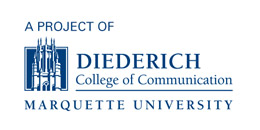
(Photo by Wes Tank)
Editor’s note: Have something on your mind? “Community Voices” is the place to let Milwaukee hear what you have to say. To be considered, we need your name, email address and phone number for verification. Please email your submissions to info@milwaukeenns.org.

(Photo provided by Angela Harris)
As a Milwaukee Public Schools parent of two MPS students, and as an MPS teacher, I was surprised to discover that MPS was hosting community engagement sessions on the third round of funding allocation from the American Rescue Plan, also known as ESSER 3.
Per the district page, MPS held five sessions at various MPS school sites, from July 8 to July 17. My surprise stemmed from the minimal communication I received about these conversations. My first notification was received on Friday, July 9 at 4:22 p.m. for a session that was happening the next day at North Division at 9:30 a.m. All subsequent emails or text messages followed the same pattern of providing information for a session in an untimely manner regarding sessions that had already ended, or notification of sessions giving less than 24 hours’ notice.

This form of random notification is inconvenient for community stakeholders — families, MPS staff and community members. It keeps stakeholders out of an important conversation in which they have every reason and right to participate.
While MPS claims to want input from the community, its actions indicate otherwise.
The allocation of the ESSER 3 funding is a historic opportunity to transform our school communities. One of my favorite quotes by educator Marian Wright Edelman states, “Education is for improving the lives of others and leaving the community better than you found it.” The appropriate allocation of the ESSER 3 funding has the potential to improve the lives of not just our MPS students but our community, and Milwaukee Public Schools is tasked with aligning this work.

Community members attend an MPS community engagement session on Jul. 15 at Vincent High School. (Photo provided by Angela Harris)
MPS will receive $506 million dollars from ESSER 3 funding allocations. Ten percent of this funding must be allocated for “loss of learning due to COVID-19.”
Per the article “What does the American Rescue Plan mean for educators and students?,” the guidelines for submitting a plan to receive this funding are crystal clear. One guideline is stakeholder engagement. You may be wondering who is considered a stakeholder. The short answer: you, the person reading this right now. Stakeholders include but are not limited to students, families, educators, staff and administration. It is any group that the district serves or engages in serving our students.
Unfortunately, the five community engagement sessions that were sponsored by MPS do not meet the guidelines for several reasons. First, during these sessions, MPS presented a predetermined plan to stakeholders. Who developed this plan?
Second, the sessions were poorly attended. I attended the listening session at Vincent High School on Thursday, July 15. The five priority areas of accelerating learning, health and wellness, facilities, technology and extracurricular activities had already been determined by MPS. After introducing the priorities, the audience was tasked with providing feedback on the two priorities they found to be most interesting. A short discussion followed that did not allow for questions, clarification, or input. These conversations were heavily controlled by MPS administration. As both an MPS parent and teacher, I found it clear that these conversations were not meaningful or thoughtful—and one thing is for certain, there was zero consultation from the stakeholders present.
This was disappointing and enraging.
MPS has five priorities for success, the fifth being strengthening collaboration and communication. As a district, we need strong collaboration and communication to ensure ESSER3 funding is allocated in a way that addresses current and systemic inequities our communities face.
This conversation reminds me of “The Parable of the River”: There are babies falling in a river and the villagers begin to save them. They exhaust their resources trying to save them and then a villager suggests they go upstream to find out why the babies are falling in.
As a city, we constantly see our students falling into the river of the school-to-prison pipeline, opportunity gaps and low graduation rates. For years, our village has claimed to exhaust our resources to “save our children from the river,” but they have refused to go upstream to find out why our children are falling in.
In August, MPS will present its current plan to the MPS Board of School Directors. As stakeholders, we need to be ready to provide testimony on the lack of meaningful community consultation and engagement around building this plan. We must demand that Milwaukee Public Schools create meaningful opportunities for real engagement and discussions that include timely invitations, opportunities to understand ESSER 3 funding and true collaboration to build a workable plan.
The $506 million dollars from ESSER 3 funding has the potential to change the fabric of our city to be more inclusive and to provide quality, equitable educational opportunities for our children. Are you ready to roll up your sleeves?
Angela Harris is an MPS teacher, MPS parent and chair of the Black Educators Caucus MKE.






I believe Angela Harris’s description of how inadequately the MPS public input sessions were advertised and carried out. What she portrays is consistent with past MPS sessions on matters such as racial equity. Neighborhood News Service is to be commended for publishing her commentary. One major way to keep a school administration honest and open is for the media to report on its actions regularly and often. The media do a pretty poor job of covering education issues in Milwaukee. Reporters should be attending and reporting to us on every MPS Board meeting and most board committee meetings, as well as meetings of City and UWM charter school oversight bodies and meetings involving voucher schools. We have freedom of the press, but we have forgotten how it can keep bright lights shining on what our public bodies are doing and how they are doing it. Good quality local reporting deserves our financial support.
This is so completely correct!!! This is the way it has always gone!!!!
When I first started practicing education law, I very quickly learned that districts only pay lipservice to the desire to partner with parents and other stakeholders in the greater community. Generally speaking, this was true within several districts where I represented students in disputes against the district. If we are going to healthfully educate our young people, we as parents, teachers, and organizations within the business community must step up — because the districts sure the heck are not going to be proactive in materially bringing us to the table.
Angela, you make some excellent points; thanks for your article. My guess is if you find MPS’s communication approach ineffective, others do too. I am not even in your district and the lack of transparency makes me angry. I hope parents feel like they are heard as well as the community at large. You know best what is needed for your kids/students.
This is a great article and as a parent I want to be more involved with these types of meetings.
MPS admin needs to start walking the walk, not just talking the talk. Thank you, Angela Harris, for your courage and leadership to demand a truly collaborative and transparent process!
I am wondering if MPS is simply too big. We have nine school board members for a city of nearly 600,000 people and a student population of over 75,000. Most school districts have nearly the same number of school board members for substantially fewer people and students. My home town, with a population of less than 3000, has seven school board members.
I am in absolute agreement with Ms. Harris on every point stated. I relocated from Las Vegas, and I have been an educator for over 20 years on the West Coast and never have I seen the unprecedented violence that I’ve experienced with MPS. It all starts with parent engagement in order to change the culture of the community to eliminate the devaluation of education in our schools. MPS student demographics consist of 91% of parents wiith low socio-economic status and student behaviors resulting into 81% suspension rates district wide. We need more actions than cultivated talk; we need programs for our families to thrive and become successful to raise good citizens in society.